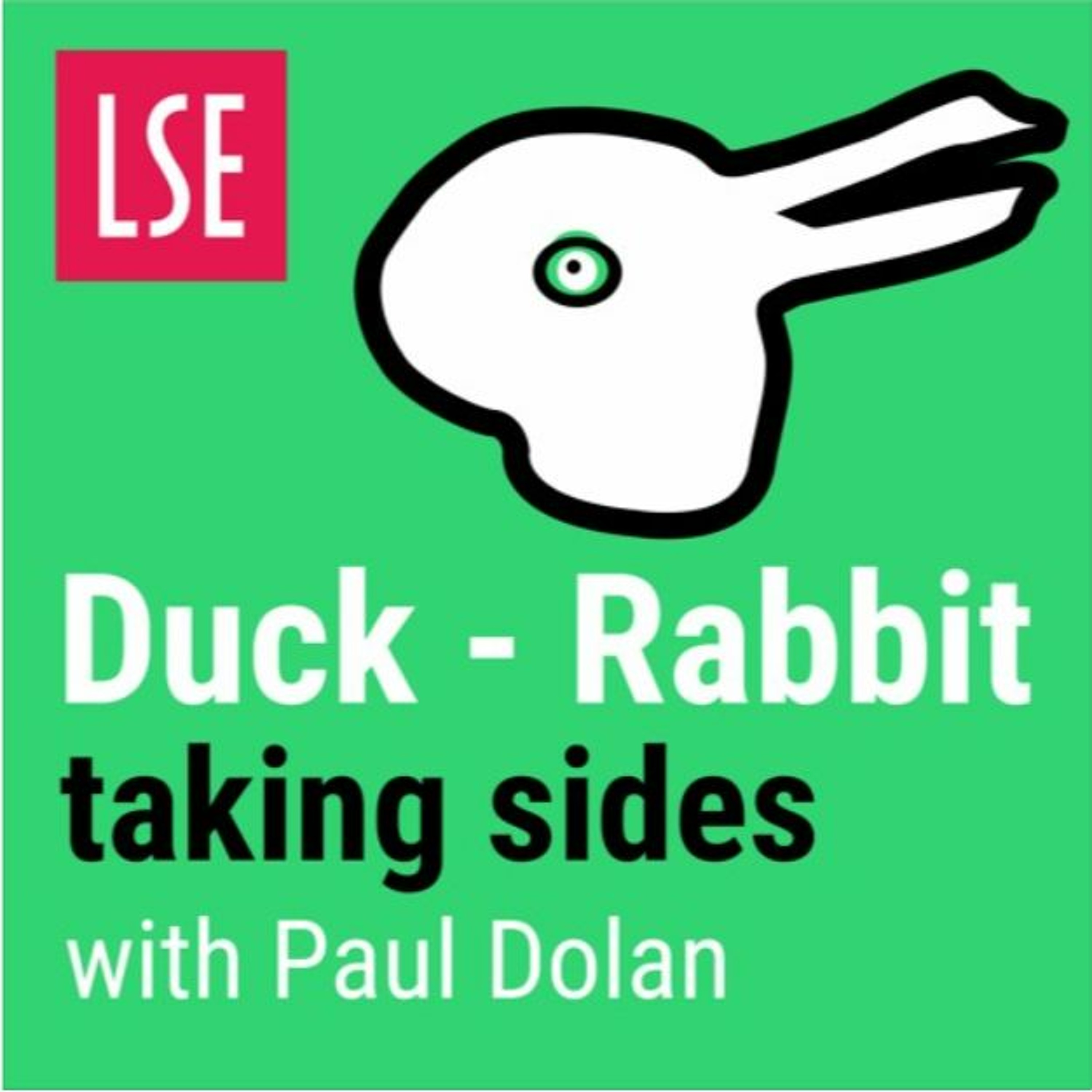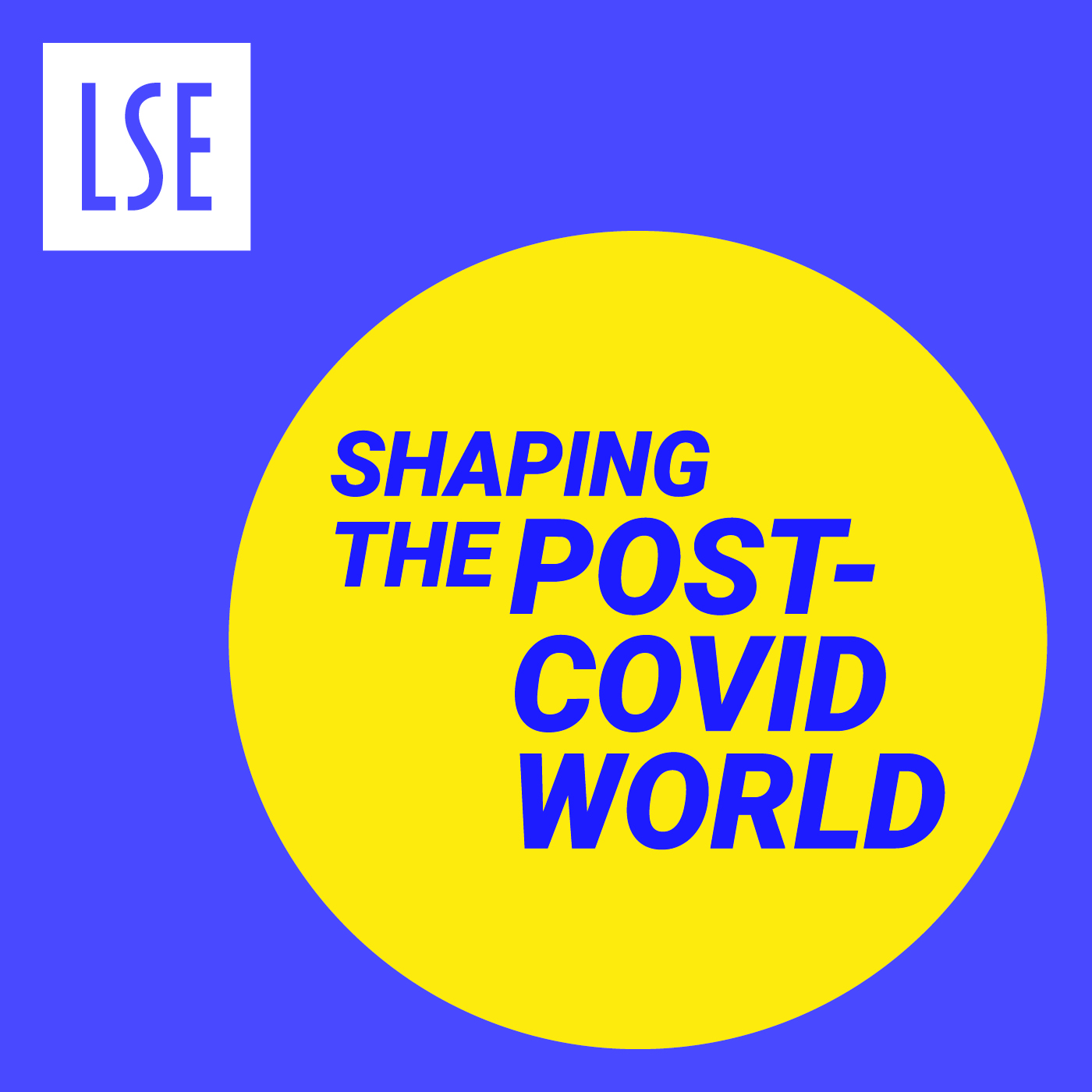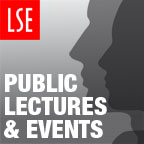Shows
 Normale Mensen Bestaan NietPolarisatie - raken we steeds meer verdeeld? Is dat erg? (met Anna Koolstra)Samen met aanstormend EU politica Anna Koolstra bespreken Thijs en Lennard of we in een bubbel leven en of dat erg is. We horen veel over polarisatie. Maar wat is het? Ook in psychologische termen? Zijn we echt ontzettend verdeeld of valt dat wel mee? En is het nodig dat we verdeeld zijn? Ook gaan we in op Terror Management Theory, wat dat is en natuurlijk wat je ermee moet.
Adverteren in deze podcast? Mail naar podcasts@astrolads.com!
Bronnen en ander lees- en luister- en kijkvoer:
- Voor meer info over Anna Koolstra, check haar kandidaat pagina: https://groenlinkspvda...2024-05-0252 min
Normale Mensen Bestaan NietPolarisatie - raken we steeds meer verdeeld? Is dat erg? (met Anna Koolstra)Samen met aanstormend EU politica Anna Koolstra bespreken Thijs en Lennard of we in een bubbel leven en of dat erg is. We horen veel over polarisatie. Maar wat is het? Ook in psychologische termen? Zijn we echt ontzettend verdeeld of valt dat wel mee? En is het nodig dat we verdeeld zijn? Ook gaan we in op Terror Management Theory, wat dat is en natuurlijk wat je ermee moet.
Adverteren in deze podcast? Mail naar podcasts@astrolads.com!
Bronnen en ander lees- en luister- en kijkvoer:
- Voor meer info over Anna Koolstra, check haar kandidaat pagina: https://groenlinkspvda...2024-05-0252 min ePODstemologyHow does societal context affect human psychology?One of the oldest and most famous questions in the social sciences is the debate over nature vs nurture in determining characteristics of the individual. Transcending this focus on the micro is a new field within social-psychology sometimes called social-ecological psychology, which explores how psychology brings about societal conditions and vice versa. Research in this vein has become popular as western psychologists have realised how distorted their view is by their tendency to only sample 'WEIRD' subjects - western, education, industrialised, rich, and democratic. Joseph Heinrich has attempted to chart the history of WEIRD societal psychology in his opus...2023-03-0737 min
ePODstemologyHow does societal context affect human psychology?One of the oldest and most famous questions in the social sciences is the debate over nature vs nurture in determining characteristics of the individual. Transcending this focus on the micro is a new field within social-psychology sometimes called social-ecological psychology, which explores how psychology brings about societal conditions and vice versa. Research in this vein has become popular as western psychologists have realised how distorted their view is by their tendency to only sample 'WEIRD' subjects - western, education, industrialised, rich, and democratic. Joseph Heinrich has attempted to chart the history of WEIRD societal psychology in his opus...2023-03-0737 min The Dissenter#573 Jennifer Sheehy-Skeffington: Evolutionary Psychology, Political Ideology, and Social Inequality------------------Support the channel------------
Patreon: https://www.patreon.com/thedissenter
PayPal: paypal.me/thedissenter
PayPal Subscription 1 Dollar: https://tinyurl.com/yb3acuuy
PayPal Subscription 3 Dollars: https://tinyurl.com/ybn6bg9l
PayPal Subscription 5 Dollars: https://tinyurl.com/ycmr9gpz
PayPal Subscription 10 Dollars: https://tinyurl.com/y9r3fc9m
PayPal Subscription 20 Dollars: https://tinyurl.com/y95uvkao
------------------Follow me on---------------------
Facebook: https://www.facebook.com/thedissenteryt/
Twitter: https://twitter.com/TheDissenterYT
This show is sponsored...2022-01-1346 min
The Dissenter#573 Jennifer Sheehy-Skeffington: Evolutionary Psychology, Political Ideology, and Social Inequality------------------Support the channel------------
Patreon: https://www.patreon.com/thedissenter
PayPal: paypal.me/thedissenter
PayPal Subscription 1 Dollar: https://tinyurl.com/yb3acuuy
PayPal Subscription 3 Dollars: https://tinyurl.com/ybn6bg9l
PayPal Subscription 5 Dollars: https://tinyurl.com/ycmr9gpz
PayPal Subscription 10 Dollars: https://tinyurl.com/y9r3fc9m
PayPal Subscription 20 Dollars: https://tinyurl.com/y95uvkao
------------------Follow me on---------------------
Facebook: https://www.facebook.com/thedissenteryt/
Twitter: https://twitter.com/TheDissenterYT
This show is sponsored...2022-01-1346 min LSE PodcastsWhy do we disagree?In this bonus episode, recorded in front of a live virtual audience, Professor Paul Dolan and his guests discuss the neuroscience and social science behind the polarisation problem. Why do we take sides on so many issues? What makes us want to be part of one group and not another? What drives our judgements, choices and assumptions?
Paul was joined by his LSE colleague Dr Jennifer Sheehy Skeffington, and fellow academics Dr Lasana Harris from University College London, Professor Anil Seth from the University of Sussex, and Dr Tiffany Watt Smith from Queen Mary University.2021-07-3025 min
LSE PodcastsWhy do we disagree?In this bonus episode, recorded in front of a live virtual audience, Professor Paul Dolan and his guests discuss the neuroscience and social science behind the polarisation problem. Why do we take sides on so many issues? What makes us want to be part of one group and not another? What drives our judgements, choices and assumptions?
Paul was joined by his LSE colleague Dr Jennifer Sheehy Skeffington, and fellow academics Dr Lasana Harris from University College London, Professor Anil Seth from the University of Sussex, and Dr Tiffany Watt Smith from Queen Mary University.2021-07-3025 min Shaping the Post-COVID WorldSHORTCAST | Duck – Rabbit: what drives our polarised culture?Contributor(s): Dr Lasana Harris, Professor Anil Seth, Dr Jennifer Sheehy Skeffington, Dr Tiffany Watt Smith, Professor Paul Dolan | This is an event shortcast, a digested version of our live online public events series. This event was recorded on 28th June 2021. A full version is available to download on the LSE player.2021-07-3025 min
Shaping the Post-COVID WorldSHORTCAST | Duck – Rabbit: what drives our polarised culture?Contributor(s): Dr Lasana Harris, Professor Anil Seth, Dr Jennifer Sheehy Skeffington, Dr Tiffany Watt Smith, Professor Paul Dolan | This is an event shortcast, a digested version of our live online public events series. This event was recorded on 28th June 2021. A full version is available to download on the LSE player.2021-07-3025 min Duck - RabbitWhy do we disagree?In this bonus episode, recorded in front of a live virtual audience, Professor Paul Dolan and his guests discuss the neuroscience and social science behind the polarisation problem. Why do we take sides on so many issues? What makes us want to be part of one group and not another? What drives our judgements, choices and assumptions? Paul was joined by his LSE colleague Dr Jennifer Sheehy Skeffington, and fellow academics Dr Lasana Harris from University College London, Professor Anil Seth from the University of Sussex, and Dr Tiffany Watt Smith from Queen Mary University.2021-07-2725 min
Duck - RabbitWhy do we disagree?In this bonus episode, recorded in front of a live virtual audience, Professor Paul Dolan and his guests discuss the neuroscience and social science behind the polarisation problem. Why do we take sides on so many issues? What makes us want to be part of one group and not another? What drives our judgements, choices and assumptions? Paul was joined by his LSE colleague Dr Jennifer Sheehy Skeffington, and fellow academics Dr Lasana Harris from University College London, Professor Anil Seth from the University of Sussex, and Dr Tiffany Watt Smith from Queen Mary University.2021-07-2725 min Shaping the Post-COVID WorldDuck – Rabbit: what drives our polarised culture?Contributor(s): Dr Lasana Harris, Professor Anil Seth, Dr Jennifer Sheehy Skeffington, Dr Tiffany Watt Smith, Professor Paul Dolan | Join Paul Dolan and his guests to launch the latest series of his podcast, Duck - Rabbit, with a discussion of the neuroscience and social science behind our polarisation problem. Why do we respond to the world in one way and not another? What makes us want to be, or feel, part of a group? What drives our judgements, choices and assumptions?
Think of this: you’re shown a picture, it's black and white and sort of blurry, and you are as...2021-06-281h 07
Shaping the Post-COVID WorldDuck – Rabbit: what drives our polarised culture?Contributor(s): Dr Lasana Harris, Professor Anil Seth, Dr Jennifer Sheehy Skeffington, Dr Tiffany Watt Smith, Professor Paul Dolan | Join Paul Dolan and his guests to launch the latest series of his podcast, Duck - Rabbit, with a discussion of the neuroscience and social science behind our polarisation problem. Why do we respond to the world in one way and not another? What makes us want to be, or feel, part of a group? What drives our judgements, choices and assumptions?
Think of this: you’re shown a picture, it's black and white and sort of blurry, and you are as...2021-06-281h 07 Shaping the Post-COVID WorldWe Are All in This Together: has COVID-19 taught us how to save the world?Contributor(s): Dr Ganga Shreedhar, Professor Nick Chater, Sanchayan Banerjee, Dr Adam Oliver | Can the massive shift in the way we now relate to each other, and the rules we choose to live by, help us tackle other collective threats to humanity, like climate change?
We need coordinated and cooperative collective action. Experts in behavioural public policy and sustainability discuss how the experience of the pandemic can be leveraged to enable new, transformative behaviours and policies.
Meet our speakers and chair
Sanchayan Banerjee (@SanchayanBanerj) is a third-year doctoral candidate in Environmental Economics at LSE. He is an Associate Fellow of...2021-03-0159 min
Shaping the Post-COVID WorldWe Are All in This Together: has COVID-19 taught us how to save the world?Contributor(s): Dr Ganga Shreedhar, Professor Nick Chater, Sanchayan Banerjee, Dr Adam Oliver | Can the massive shift in the way we now relate to each other, and the rules we choose to live by, help us tackle other collective threats to humanity, like climate change?
We need coordinated and cooperative collective action. Experts in behavioural public policy and sustainability discuss how the experience of the pandemic can be leveraged to enable new, transformative behaviours and policies.
Meet our speakers and chair
Sanchayan Banerjee (@SanchayanBanerj) is a third-year doctoral candidate in Environmental Economics at LSE. He is an Associate Fellow of...2021-03-0159 min Latest 300 | LSE Public lectures and events | Audio and pdfLSE Festival 2018 | Identity and the Welfare State: evolving challenges for sustaining social solidarity [Audio]Speaker(s): Professor Xenia Chryssochoou, Professor Peter Dwyer, David Goodhart, Celestin Okoroji | Editor's note: We apologise for the poor audio quality of this podcast. Central to the promise of the Beveridge Report is the assumption of social solidarity: we need a cohesive society to support social protection, and the resulting shared safety net should increase cohesion even further. Yet as the country and its welfare state evolved, so did the social bonds on which they depended. Given what we know about human behaviour and experience, what prospect is there for the level of solidarity needed to carry Beveridge’s vision in...2018-02-1957 min
Latest 300 | LSE Public lectures and events | Audio and pdfLSE Festival 2018 | Identity and the Welfare State: evolving challenges for sustaining social solidarity [Audio]Speaker(s): Professor Xenia Chryssochoou, Professor Peter Dwyer, David Goodhart, Celestin Okoroji | Editor's note: We apologise for the poor audio quality of this podcast. Central to the promise of the Beveridge Report is the assumption of social solidarity: we need a cohesive society to support social protection, and the resulting shared safety net should increase cohesion even further. Yet as the country and its welfare state evolved, so did the social bonds on which they depended. Given what we know about human behaviour and experience, what prospect is there for the level of solidarity needed to carry Beveridge’s vision in...2018-02-1957 min Latest 300 | LSE Public lectures and events | Audio and pdfLSE Festival 2018 | Identity and the Welfare State: evolving challenges for sustaining social solidarity [Slides]Speaker(s): Professor Xenia Chryssochoou, Professor Peter Dwyer, David Goodhart, Celestin Okoroji | Editor's note: We apologise for the poor audio quality of this podcast. Central to the promise of the Beveridge Report is the assumption of social solidarity: we need a cohesive society to support social protection, and the resulting shared safety net should increase cohesion even further. Yet as the country and its welfare state evolved, so did the social bonds on which they depended. Given what we know about human behaviour and experience, what prospect is there for the level of solidarity needed to carry Beveridge’s vision in...2018-02-1900 min
Latest 300 | LSE Public lectures and events | Audio and pdfLSE Festival 2018 | Identity and the Welfare State: evolving challenges for sustaining social solidarity [Slides]Speaker(s): Professor Xenia Chryssochoou, Professor Peter Dwyer, David Goodhart, Celestin Okoroji | Editor's note: We apologise for the poor audio quality of this podcast. Central to the promise of the Beveridge Report is the assumption of social solidarity: we need a cohesive society to support social protection, and the resulting shared safety net should increase cohesion even further. Yet as the country and its welfare state evolved, so did the social bonds on which they depended. Given what we know about human behaviour and experience, what prospect is there for the level of solidarity needed to carry Beveridge’s vision in...2018-02-1900 min Summer 2016 | Public lectures and events | Audio and pdfClash! How to Thrive in the Multicultural WorldContributor(s): Professor Hazel Markus, Professor Chandran Kukathas, Dr Jennifer Sheehy-Skeffington | As the world gets smaller, people with different cultural backgrounds are colliding more than ever before. Drawing on studies from across the social sciences, this approach explains not only how the independence-interdependence divide can ignite conflict and also how we can harness these culture clashes for good. Hazel Markus is Davis-Brack Professor in the Behavioral Sciences, Stanford University. Chandran Kukathas holds the Chair in Political Theory and is Head of the Department of Government at the London School of Economics. Jennifer Sheehy-Skeffington is an Assistant Professor in the Social...2016-04-251h 27
Summer 2016 | Public lectures and events | Audio and pdfClash! How to Thrive in the Multicultural WorldContributor(s): Professor Hazel Markus, Professor Chandran Kukathas, Dr Jennifer Sheehy-Skeffington | As the world gets smaller, people with different cultural backgrounds are colliding more than ever before. Drawing on studies from across the social sciences, this approach explains not only how the independence-interdependence divide can ignite conflict and also how we can harness these culture clashes for good. Hazel Markus is Davis-Brack Professor in the Behavioral Sciences, Stanford University. Chandran Kukathas holds the Chair in Political Theory and is Head of the Department of Government at the London School of Economics. Jennifer Sheehy-Skeffington is an Assistant Professor in the Social...2016-04-251h 27 Summer 2016 | Public lectures and events | VideoClash! How to Thrive in the Multicultural WorldContributor(s): Professor Hazel Markus, Professor Chandran Kukathas, Dr Jennifer Sheehy-Skeffington | As the world gets smaller, people with different cultural backgrounds are colliding more than ever before. Drawing on studies from across the social sciences, this approach explains not only how the independence-interdependence divide can ignite conflict and also how we can harness these culture clashes for good. Hazel Markus is Davis-Brack Professor in the Behavioral Sciences, Stanford University. Chandran Kukathas holds the Chair in Political Theory and is Head of the Department of Government at the London School of Economics. Jennifer Sheehy-Skeffington is an Assistant Professor in the Social...2016-04-251h 27
Summer 2016 | Public lectures and events | VideoClash! How to Thrive in the Multicultural WorldContributor(s): Professor Hazel Markus, Professor Chandran Kukathas, Dr Jennifer Sheehy-Skeffington | As the world gets smaller, people with different cultural backgrounds are colliding more than ever before. Drawing on studies from across the social sciences, this approach explains not only how the independence-interdependence divide can ignite conflict and also how we can harness these culture clashes for good. Hazel Markus is Davis-Brack Professor in the Behavioral Sciences, Stanford University. Chandran Kukathas holds the Chair in Political Theory and is Head of the Department of Government at the London School of Economics. Jennifer Sheehy-Skeffington is an Assistant Professor in the Social...2016-04-251h 27